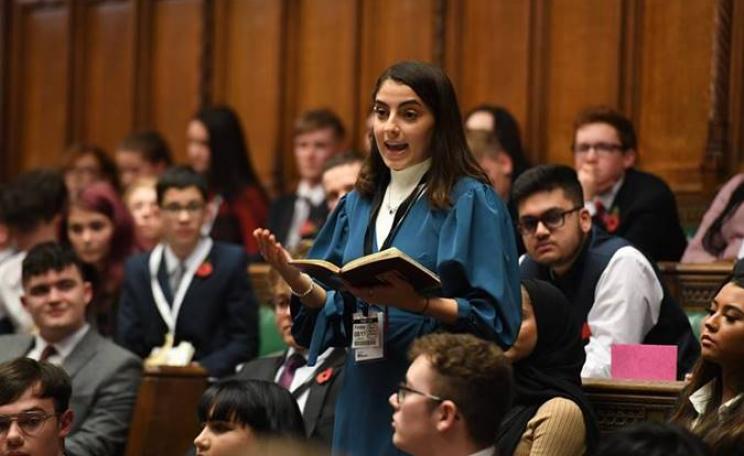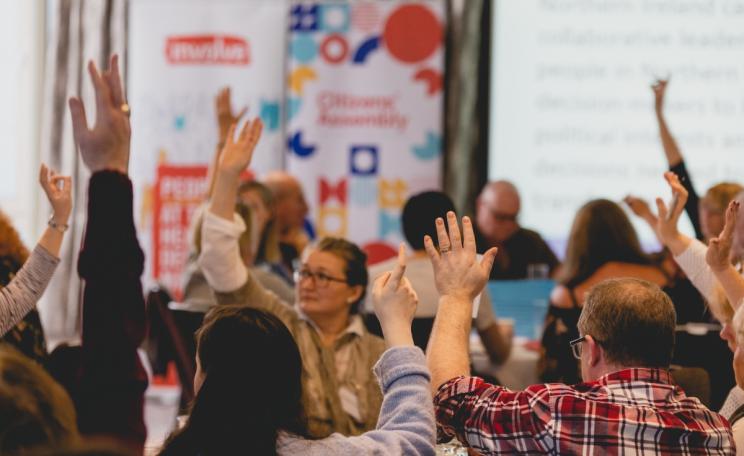-
Living in sympathy with our natural world means collective decision-making.
No one group of individuals in society should be able to dominate any other(s), either by force of arms or by force of numbers.
So, when disputes are serious: no fighting and no majority voting. Politics should not be win-or-lose. Instead, when the subject is complex or controversial, decision-making should be preferential.
Collective cost
After all, the democratic process should aim to identify that which gives “the greatest good to the greatest number.”
Majority voting cannot identify a consensus; rather, it measures the degree of dissensus. So what kind of voting mechanism should we embrace?
Majority voting worked fairly well (for rich men) in the forums of ancient Greece and (for the male and even richer ministers) in the Imperial Court of the Former Hàn in China. But there were no political parties in those days, in Europe or Asia. So Mr X might agree with Mr Y today and disagree tomorrow, without falling into groups of permanent antagonism.
To our great collective cost, dictators and democrats alike prefer the Orwellian binary vote – ‘this’ good, ‘that’ bad. They choose the question and, in most cases, the question is the answer.
So majority voting rarely identifies “the will of the people” nor even that of the majority, but the will of he – it’s usually a he – who sets the question.
Binary vote
In 1997, for example, Wales had a referendum. Some wanted independence. Tony Blair wanted devolution. So he wanted the Welsh to want devolution. So the question was binary: “Devolution or status quo?” It won, by 0.6 percent.
David Cameron’s 2011 referendum on the electoral system was no better. He doesn’t like proportional representation (PR). So the question was binary: “First-past-the-post (FPTP) or the alternative vote (AV)?” neither of which is PR. For thousands of PR supporters, this was like asking a vegan, “Beef or lamb?”
In a nutshell, for problems of any contention, majority voting is inadequate and even dangerous. For if people vote ‘no’ to everything, as in populism, we will finish up with nothing: Brexit, Trump and so on.
Take Brexit. June 2016 could have been a three-option referendum: “In the EU, the EEA or the WTO?” Voting separately on each of these options would probably have got a majority against all.
But there was only one ballot: “In the EU, yes or no? (‘remain’ or ‘leave’)?” and the outcome was 52 percent ‘no’ (‘leave’). If we assume the 52 percent was split evenly between the two, “In the EEA?” and “In the WTO?” separate votes could have been a 74 percent ‘no’ to each.
Pluralism
We cannot best identify “the will of the people” or that of parliament in a dichotomy. This has been painfully demonstrated by the fact that, since the June 2016 referendum, society has had a huge argument about the word ‘leave’: is it to be a ‘soft’ or ‘hard’ Brexit? Are we to be in a Customs Union, the EEA, Norway +, the WTO or whatever?
The supposedly identified will of the people is still unknown.
In 1992, New Zealand put their electoral system to a referendum. They had five options: FPTP, their then status quo; the Irish single transferable vote, PR-STV; and three others in between. In a two-round ballot, the people chose a compromise, the German half-and-half FPTP/PR system.
So pluralism is possible. Both in parliament and in any referendum, when there are lots of options ‘on the table’, an independent body should decide how many and which options there should be for a (short) list of at least three options.
The MPs/voters may then cast their preferences. But nobody votes ‘no’! Nobody votes against any body or any thing. Rather, we seek consensus.
Politics would be inclusive. At best, the winner would be the option with the highest average preference and, if it got a good score, this outcome would indeed be the collective compromise, the consensus.
Majority rule
In theory, parliaments represent all the people. Most work by majority votes. So most split into two, and each government represents only the bigger ‘half’. The consequences of this practice are often horrific.
Prior to the 1998 Belfast Agreement, Northern Ireland Catholics were a permanent minority. In 2016, the Tories concocted a majority by bribing the extremist DUP, which thus acquired a power way beyond its proportional due – not unlike Austria’s Freedom Party one year later.
A single party with 50 per cent plus one of the seats could still get 100 per cent of the power.
In a pluralist democracy, the resolution of every controversy should first allow everything to be ‘on the table’. And as Professor Iain McLean writes in his Oxford Concise Dictionary of Politics: “When there are more than two [options],” preferential voting “is the best interpretation of majority rule.”
Accordingly, let us recognise the diversity of our own species: in parliaments and in referendums, on matters of contention, ballots – not least any ‘People’s Vote’ – should be preferential.
If we are to defend the living planet democratically, resolving disputes should facilitate the identification of the general will. Consenual, preferential voting in decision-making may well be a pre-requisite for our survival.
This Author
Peter Emerson is the director of the Belfast-based de Borda Institute. His latest book - Majority voting as the catalyst of populism (Springer, Heidelberg) - will be published later this year.





